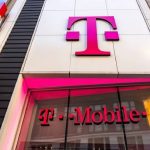Electric vehicle company Arrival wants to break the current auto manufacturing model. Instead of one giant factory and an assembly line, Arrival’s commercial electric vans, buses and cars are robotically built in small, regional microfactories, of which the company wants to open 31 by the end of 2025.
If you want to achieve something radically more efficient, you have to go deeper, into complex, high-level computational algorithms that are not normally used in consumer-facing products.
The London-based company, founded in 2015, joined the ranks of EV companies going public via SPAC, merging with blank-check company CIIG Merger Corp. in March. UPS has already ordered 10,000 of Arrival’s robotically engineered vans, and the company recently signed a deal with Uber to create purpose-built EVs for ride-hail drivers.
Arrival founder Denis Sverdlov has been at the intersection of technological advancement and societal change before. Born in the nation of Georgia, Sverdlov founded his first company at 22 selling IT consulting software to enterprise customers. Since then, he has built and exited multiple companies, most notably telecommunications operator Yota Group. Founded in 2007, the same year the iPhone came out, Yota eventually launched a 4G network across Russia, coupling it with an HTC smartphone that would facilitate the use of the network. Sverdlov sold the company in 2012 for $1.5 billion, did a brief stint as the Russian deputy communications and mass media minister, and then went on to start Arrival. Oh, and he founded electric autonomous car race Roborace in 2015, too, just ‘cause.
With the same sense that fast, mobile internet and big screens would change the telecoms industry back in 2007, Sverdlov began to see a perfect storm brewing in the EV world over the last decade. In 2015, he founded Arrival in anticipation of a switch to electric as well as advancements happening in material, research and development in the robotics industry. He predicts this will have an even bigger impact on the automotive industry than 4G had on telecommunications.
TechCrunch: Denis, your first company was a telecom operator and you were behind the creation of Roborace. Now you’re trying to change the way the auto industry makes cars with Arrival. Are you a serial entrepreneur who is already thinking about the next thing? Or are you pretty involved in this one?
Dennis Sverdlov: Yeah, I’m quite involved with Arrival, and I expect to see many new technologies and enablers come out of this journey. For example, if you take our robotic technologies, which we use for microfactories, you can easily see how that will be used in other industries, as well, so it’s not going to be used only for automotive.
But as a company, we need to focus on what we do today because we need to achieve a lot here, and I think it’s important to focus on that. But, yeah, I would also count myself as a serial entrepreneur because I’ve been doing this for more than 20 years.
How do you think that your past business decisions have informed your current strategy with Arrival?
Powered by WPeMatico






